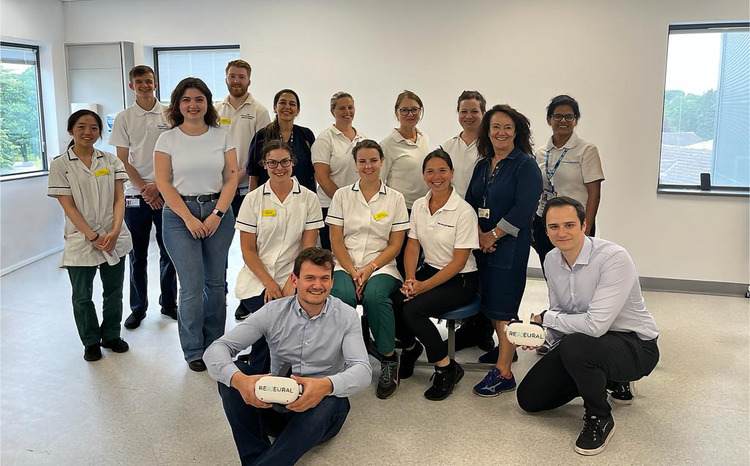NHoS project ending after legal challenge
- 19 January 2018

A volunteer-led project to tailor the Linux open source operating system for use within the NHS has been axed after receiving a second trademark infringement letter threatening action from the Department of Health for breach of copyright.
Originally called NHSbuntu, later changed to NHoS (National Health Operating System) after an earlier legal warning, the open source project was being developed as a proof of concept based on the Linux Ubuntu distribution.
The project began in January 2017 trying to prove the potential to replace the current NHS Windows-based smartcard verification system, used by almost three-quarters of a million NHS staff.
The ultimate ambition was to provide an alternative to the Windows operating system, used in almost all parts of the NHS.
The volunteer initiative had attracted interest from a range of NHS organisations and meetings with NHS England.
The NHS, which spends approximately £100m a year on Microsoft licenses, is currently engaged in negotiations with Microsoft for an NHS-wide enterprise licensing deal.
The project initially ran into difficulties with the NHS brand police for its provocative use of the NHSBuntu name. Following an initial warning the project was renamed NHoS (National Health Open Source). The change was not enough to satisfy the Department of Health further threat of legal action was sent to the project team this week.
The Government Legal Service letter required that NHoS “cease using the NHS letters in your website domain name, your organisation/ product name, your twitter account and the NHS logo in your organisation name and product logos”.
“With many public code repositories each with testing and packaging tools, changing the name of the project required significant work, all time and effort that could have been used to further develop the functionality of the project.” Dyke told Digital Health News.
For Dr Marcus Baw, co-founder of the NHoS project it was the final straw, he blogged “We’ve finally reached a point where we’ve had enough.”
Dr Baw continued: “The entire NHSbuntu/ NHoS team consists of four core members who have been working as volunteers, with a few small work packages and pieces of funding courtesy of the Apperta Foundation (a Community Interest Company set up to provide seed funding for NHS open source initiatives).”
He argued that the legal challenges would never have happened had NHS England or NHS Digital provided any support for the initiative.
“But we have received absolutely zero backing from those higher up in NHS Digital and other NHS bodies, – despite significant interest from grass-roots CIOs and NHS tech implementers, who welcome the range of possibilities that an open source NHS-warranted Spine environment would provide them.”
Dr Baw added: “The NHS will just have to solve its own terminal addition and lock-in to Microsoft. One day we may re-initiate the project, when we have some people backing us at high level who actually believe in the project’s aim and aren’t using it as leverage to hep them get their political ends.”
In a parting shot Dr Baw concluded his blog post: “You hear a lot about innovation in the NHS, but if this is the way innovators are treated – and with the full might of DH Legal against an unfunded volunteer organisation – then you can see why we have no actual innovation…”
Disclosure
Rob Dyke and Dr Marcus Baw, the two key members of the NHoS collaboration, are associate partners of Digital Health. Rob Dyke consults on technology and architecture. Dr Baw, ‘discourse wrangler’ at large, has been a prime mover is the success of the online CCIO and CIO communities.





15 Comments
Was the issue with the Microsoft deal or the “don’t use NHS branding” letter?
The latter was easy to resolve…
I can emphasize about lack of support from some of the organisations higher up the NHS /nonNHS hierachy. On a different subject, or maybe not, IT support is even more important than IT development. I have heard that the team building (developing and maintaining the code for FaceBook is 8 (maybe 9). IT is amazing what a small team of builders can achieve in health IT, far more (x3) than the average team of health “leaders”. I take my helmet off to all small teams of builders working within the health domain.
Disappointing, part of the point of small innovation teams is to spark interest and attract funding for growth. A missed opportunity.
Chip makers have found a major flaw affecting all OS’s can you quickly release a new version…. sorry mate we have day jobs to do and it’s a bank holiday weekend to boot.
The element of risk with this project was too great for any sizeable NHS Trust to take it on board.
This is FUD. No one is going to implement this without proper support but having some alternatives that at the very least keep Microsoft honest is essential to the Public Sector.
Canonical and RedHat offer Enterprise Support Agreements.
Canonical released updates for the intel microcode packages in a timely manner. The default setting of nhos is to automatically update when high severity security packages are released. All done.
How much do their enterprise support contracts cost? Wouldn’t you just be shifting money from Microsoft to other large corporations?
Yes but that’s the point of having a ‘market’ we’d be in a much better place if we had a choice of providers to buy our support from – then if you’re dissatisfied with your current provider you have an option…
If everything is with Microsoft who do we turn to if we find things wanting?
By way of a follow-up: “Intel Warns Users Not to Install Its ‘Faulty’ Meltdown and Spectre Patches.” is currently headline on Hacker News. Apparently Chipzilla rushed things a bit…
DoH must be clapping each other on the back for that win! Doesn’t really make any sense does it?
“Default is to automatically update” …. with no testing to ensure that any patch doesn’t break smartcard or other functionality?
No. Cos that would be stupid.
Opon sauce speeling chequers ate that beast.
Obviously not using the Microsoft spell checker when writing the quotes
Comments are closed.